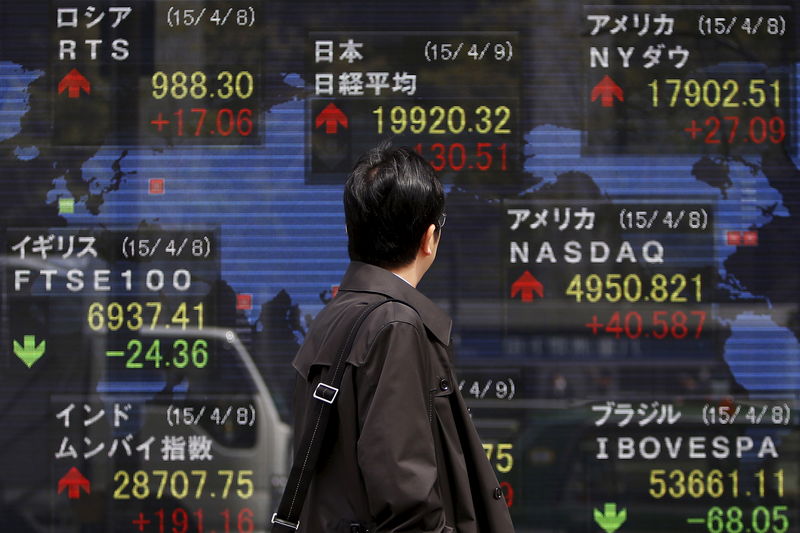Asia’s stock markets mostly failed to show signs of steadiness as investors awaited key economic data that could influence the United States Federal Reserve’s decision on interest rate cuts.
At 00:30 EST (04:30 GMT), Japan’s Nikkei index fell 0.1% to 38,634.50, while China’s Shanghai Composite Index was down 0.52% to 2,796.48. Hang Seng index dropped similarly, exchanging hands at 17,601.00, or -0.51% on the day.
The negative market sentiment follows a set of positive spending figures released on Friday, which led to a reduced likelihood of a significant half-point rate cut by the Fed. The upcoming U.S. ISM manufacturing survey and the highly anticipated jobs data set for release on Friday are expected to play a pivotal role in the Fed’s rate decision-making process.
On the other hand, investor concerns surrounding China are continuing to increase.
“The economy was under double whammy of weather shocks and weak demand in August. We expect deteriorating activities yet better CPI on food reflation. The “around 5%” growth target could be at risk,” Citigroup economists wrote in a note Tuesday.
“Even with acceleration in government bond issuance, we doubt how effective the proceeds could be deployed for investment before the grip on debt management is loosened.”
Sanergy Group collapsed 99% Tuesday after Hong Kong’s Securities and Futures Commission told investors to avoid trading the stock given its high concentration in shareholding.
On the other hand, Reuters reported that Tesla plans to produce a six-seat variant of its Model Y car in China from late 2025.
China-Japan tensions rise
Over the past weekend, tensions between China and Japan escalated as Bloomberg News reported that China is threatening severe economic consequences if Japan further tightens restrictions on sales and servicing of chipmaking equipment to Chinese firms.
It adds complexity to the efforts led by the United States to limit China’s access to advanced technology and could have significant implications for the semiconductor industry.
Accordingly, high-level Chinese officials have conveyed their stance in meetings with Japanese officials. Toyota Motor (NYSE:TM) Corp., a key player in Japan’s chip policy, has privately expressed concerns to Tokyo about potential Chinese retaliation that could hinder Japan’s access to vital minerals necessary for car manufacturing.
Toyota’s involvement in Japan’s semiconductor strategy is underscored by its investment in a new chip campus by Taiwan Semiconductor Manufacturing (NYSE:TSM) in Kumamoto.
This investment, along with concerns from Tokyo Electron Ltd. (TYO:8035)., a semiconductor equipment manufacturer that could be directly impacted by new Japanese export controls, is a major factor for Japanese policymakers.
The U.S. has been actively encouraging Japan to implement further restrictions on companies like Tokyo Electron from selling advanced chipmaking tools to China.
This is part of a broader campaign to curb China’s advancements in the semiconductor sector. In response to China’s export restrictions on materials such as gallium, germanium, and graphite last year, U.S. and Japanese officials have been strategizing to ensure a reliable supply of these critical minerals.

